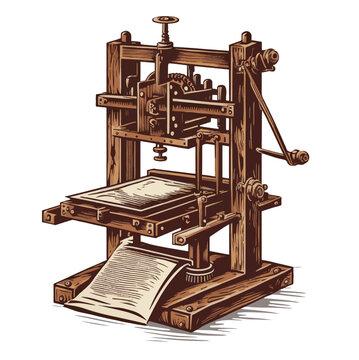The printing press stands as one of the most influential inventions in human history, reshaping the way knowledge and information spread across the globe. Before its invention, books were laboriously copied by hand, making them rare and expensive commodities accessible only to the wealthy or religious elites. The printing press allowed for mass production of texts, drastically reducing costs and increasing accessibility. This technological innovation not only democratized knowledge but also laid the foundation for an informed and literate society.

Invented by Johannes Gutenberg in the mid-15th century, the printing press combined movable type with mechanical presses, a breakthrough that transformed European culture. The printing press enabled ideas to circulate faster than ever before, fueling intellectual movements such as the Renaissance and the Reformation. With printed materials available in larger quantities, scholars and thinkers could share their work more widely, stimulating debate and innovation. The printing press, therefore, was more than a machine; it was a catalyst for societal progress and cultural exchange.
The spread of the printing press had profound effects on education and literacy. As books became more affordable, schools and universities gained access to a broader range of materials, enhancing teaching and learning. Students could now study multiple copies of the same text, allowing for more rigorous analysis and discussion. The printing press played a crucial role in standardizing languages and texts, as printed works required consistent spelling and formatting. This standardization strengthened communication across regions, further highlighting the transformative power of the printing press.
In addition to education, the printing press influenced religion and politics. Religious texts, most notably the Bible, were produced in large quantities thanks to the printing press, allowing people to interpret spiritual teachings independently of clerical authorities. This accessibility contributed to significant religious reformations and a shift in societal power structures. Similarly, the printing press enabled the distribution of political pamphlets and treatises, helping to shape public opinion and mobilize social movements. Without the printing press, the rapid dissemination of revolutionary ideas would have been nearly impossible.
The printing press also had a major impact on science and technological development. Prior to its invention, scientific discoveries were often confined to isolated scholars or secretive communities. The printing press allowed research findings, diagrams, and methodologies to be shared widely, accelerating the pace of scientific progress. Textbooks and journals printed via the printing press became essential tools for researchers, fostering collaboration and building a foundation for modern scientific inquiry. In this way, the printing press became a crucial instrument in humanity’s pursuit of knowledge.
Beyond its cultural and intellectual influence, the printing press reshaped economies by creating new industries and job opportunities. Printers, typesetters, paper manufacturers, and bookbinders formed an entire network of trades centered around the printing press. Cities with printing hubs became centers of commerce and innovation, attracting intellectuals, artists, and merchants alike. The economic impact of the printing press demonstrated how technology can drive both cultural enrichment and material prosperity, reinforcing the interconnected nature of human development.
The social implications of the printing press were equally profound. By increasing access to information, the printing press encouraged critical thinking and civic engagement. Ordinary people could now read about events, ideas, and policies that were once the exclusive domain of the elite. This shift empowered communities to participate more actively in decision-making processes and contributed to the emergence of more democratic societies. The printing press, therefore, was not merely a tool for producing books—it was a medium through which society could evolve and become more participatory.
In conclusion, the printing press remains a defining innovation in human history, influencing nearly every aspect of life from education and religion to science and politics. Its ability to disseminate knowledge widely changed how people thought, learned, and communicated. By making information accessible to a broader audience, the printing press helped shape the modern world, proving that technology can have enduring effects on culture, society, and progress. The legacy of the printing press continues to inspire innovation, reminding us of the transformative power of sharing ideas.
